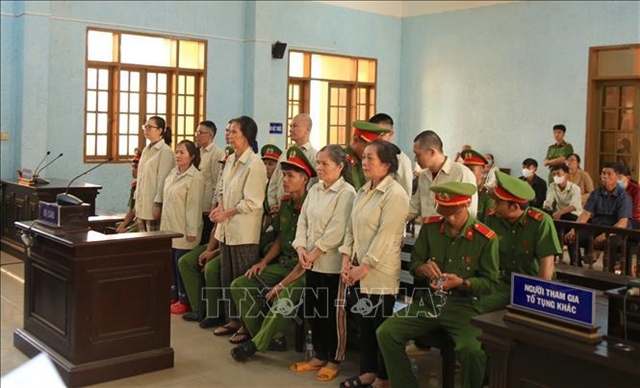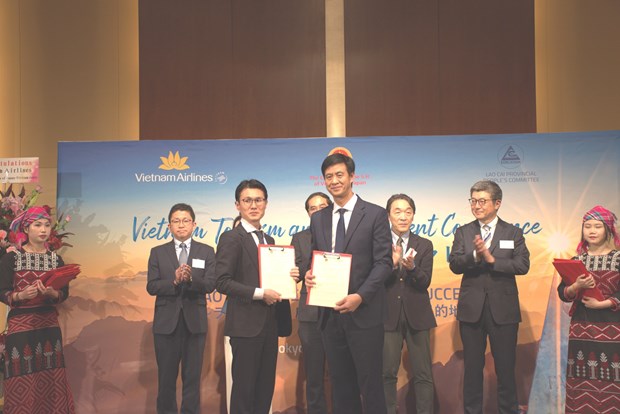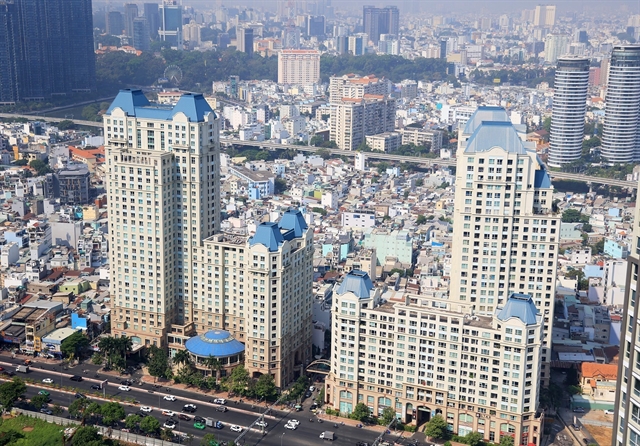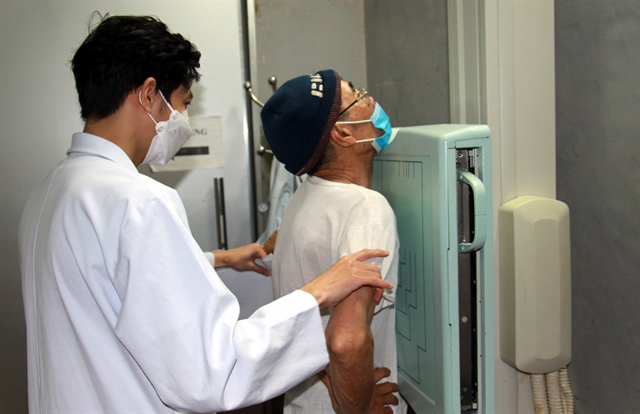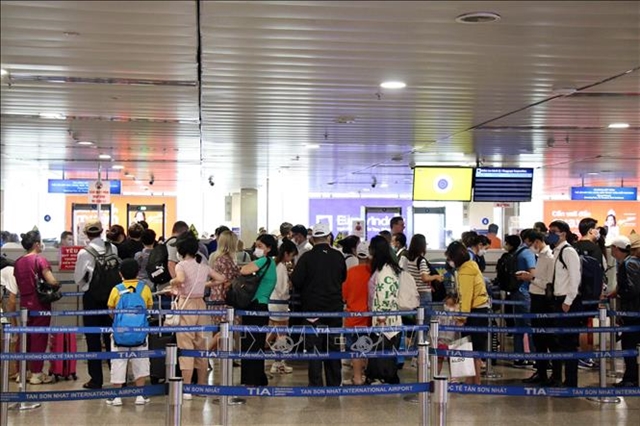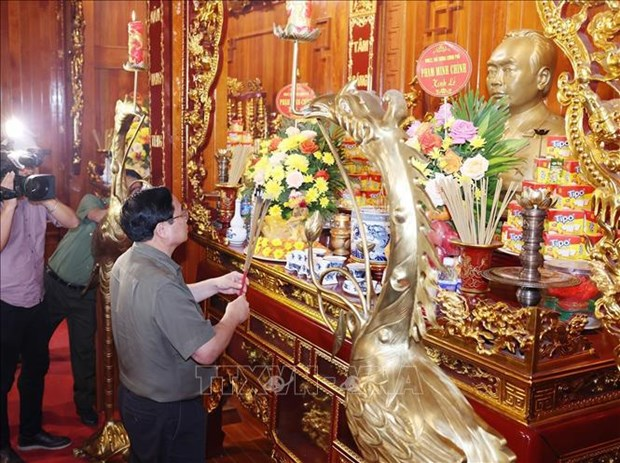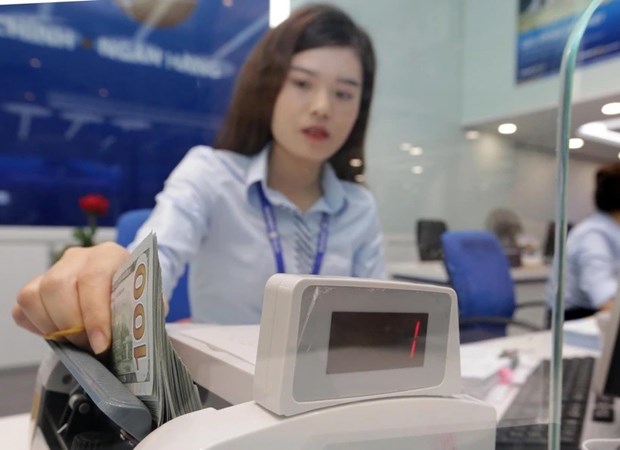 Economy
Economy
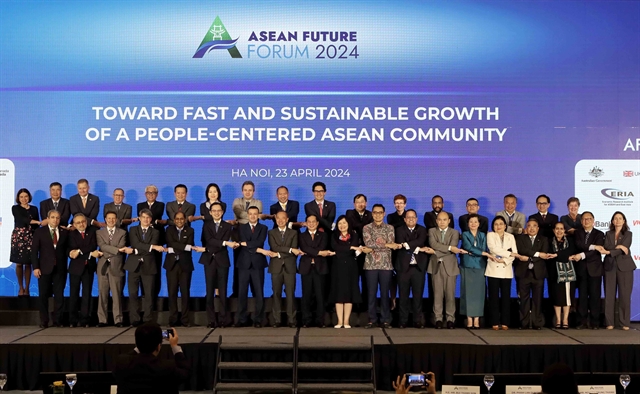
Ninety per cent of all National Assembly deputies on Tuesday approved a Government resolution on the feasibility report for the phase-one development of the Long Thành International Airport.

|
| The model of the Long Thành International Airport plan in the southern province of Đồng Nai. Photo courtesy of Airports Corporation of Việt Nam |
HÀ NỘI — Ninety per cent of all National Assembly deputies on Tuesday approved a Government resolution on the feasibility report for the phase-one development of the Long Thành International Airport.
The plans include building a runway, a terminal and other components to serve 25 million passengers and 1.2 million tonnes of goods each year.
Total investment of the airport development project should not exceed VNĐ336.63 trillion (US$16 billion) as approved in June 2015. The first phase of the project will cost about VNĐ111 trillion.
The National Assembly also agreed to divide the national defence area of 1,050 hectares into two main parts. An area of 480 hectares will be used to develop the airport with military actions being prioritised.
The Government is trusted to select the contractors. According to the Chairman of the NA Economic Committee Vũ Hồng Thanh, the Long Thành International Airport is a large-scale project that links to the national interest, national defence and security.
Therefore, it is important to select the right contractors to assure the socio-economic development. Plus, assigning the Government to choose contractors complies with the Law on Bidding.
Amended law on securities
On the same day, National Assembly delegates also approved the amended Law on Securities with more than 92 per cent of all deputies agreeing with the changes.
The new law contains 10 chapters and 135 articles regulating activities in the securities sector, rights and obligations of individuals and organisations, the operation of the securities markets, and the governmental management of the sector.
After debates, the new law states that private share issuance and sale of non-public companies must comply with the Law on Enterprises and relevant rules.
Thanh said on Tuesday the change would assure the legal system would be operated properly and the issuance and sale would be monitored closely, offering the best interest and benefit for businesses.
Non-public companies’ private share issuance and sale was written in the draft on amended enterprises’ law and the law was expected to get NA deputies’ approval in the next NA meeting, Thanh said.
Changes would be made to make sure the laws on securities and enterprises are connected, he added. The two laws will take effect on January 1, 2021.
Under the amended Law on Securities, the Vietnam Stock Exchange – which will manage the Ho Chi Minh and Ha Noi stock exchanges – will operate in the form of a business and the State will holds more than 50 per cent of total charter capital or total voting shares.
The Prime Minister is empowered to decide on the operation and organisation of the Vietnam Stock Exchange and its members. The exchange will be directly managed by the State Securities Commission.
Thanh said the Vietnam Stock Exchange would be the highest-level market regulator, which will benefit the market by issuing common indices and standards for the two exchanges.
But the two exchanges would keep operating separately and their merger would not be executed in the near future, Thanh said, adding the two local bourses would work as member companies of the Vietnam Stock Exchange.
Resolution and law on late liabilities, audit
More than 91 per cent of all NA deputies gave the green light to the resolution regulating the settlement of late, uncollectible tax liabilities.
The subject to the resolution includes people and organisations whose tax liabilities are produced before July 1, 2020. Those are individuals that are declared dead, missing or losing capacity of normal actions.
Meanwhile, organisations and businesses are those that have filed for bankruptcy and insolvency or their operations are destroyed by natural disasters and unexpected accidents.
Meanwhile, 94 per cent of all NA deputies approved the amended Law on Audit.
Law on Reserve Forces
The NA yesterday afternoon also passed the Law on Reserve Forces with 92.96 per cent approval.
With five chapters and 41 articles, the law stipulates regulations on the mobilisation of reserve forces as well as policies and responsibilities for organisations and individuals involved in the reserve forces.
Earlier in the morning session, NA deputies mulled over the draft Law on Mediation and Dialogue in Court.
The draft law stipulates procedures of mediation and dialogue and recognition of mediation results.
According to Nguyễn Thị Thủy, a deputy from Bắc Kạn Province, positive results had been reported from the pilot implementation of strengthening mediation and dialogue in settling civil cases and administrative lawsuits in 16 provinces and cities.
The ratio of successful mediation hearings had reached 78 per cent, proving to be an effective mechanism which saved money for residents and also the State budget.
“It is estimated that the cost of a first-instance trial is at least VNĐ5.5 million [$237] while the cost of mediation is only VNĐ1.2 million. It means that successful mediation helps save VNĐ4.3 million for the State budget,” she said, adding that VNĐ5.5 million was the amount of money paid to judicial staff, while spending for appeal trials or judgment enforcement was much higher.
Thủy said priority would be given to mediation and dialogue in a bid to reform the country's judicial sector.
“This is consistent with the tradition of the friendly and sentimental lifestyles of the Vietnamese people.”
Many deputies echoed Thủy’s opinion, saying the law would help to heal conflicts, raise legal awareness among people and prevent disputes in the future. It would also create a consensus among the people and ensure political security and social order.
An Giang Province Deputy Nguyễn Mai Bộ said handling social disputes using ethics and customs was very important to Vietnamese people, adding that the law would promote this.
“I have a lot of experience with mediation cases at grassroots levels. I believe that people will be more gentle and tolerant if a dispute is successfully resolved by mediation. This will reduce the number of civil cases and lawsuits,” he said. — VNS
— VNS


